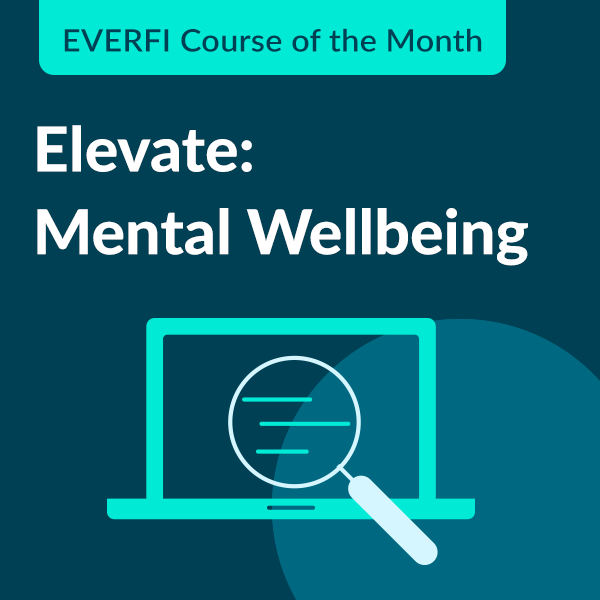We are living through remarkable times. Parents in particular are under enormous stress. You may be a keyworker on the front line, juggling work, childcare and your safety. You may be working from home, delivering schooling, parenting, and supporting vulnerable family members. Perhaps your career has been impacted and the future is unsure. As parents and guardians strive to keep households running in some semblance of order and calm, we must also consider the particular needs of teenagers and young adults in such unprecedented times.
Next to their friends, teenagers are most likely to reach out to parents at times of emotional stress, however difficult your relationship may sometimes be. And now you’ve been forcibly thrust together by isolation, it’s even more likely they will turn to you, at a time when you may feel most stuck for words. In this piece, we suggest some techniques that might help you better communicate with your teenager, and nurture their wellbeing, both now and in years to come.
Be Genuine
As parents, it can be hard to strike the right balance with sensitive teens, especially at this stressful moment. Teenagers will be facing the disappointment of cancelled events, the anticlimax of not sitting exams for which they prepared, and missing meeting up with their friends. Add anxiety about COVID-19 to that heady mix, and your teenager is likely enduring an unprecedented weight of emotion. In addition, as families isolate together, what little control your teenager enjoyed has been forcibly removed without warning, leaving them feeling powerless.
Now is the time to share positive elements of your own coping strategies, not only to reassure your teenager, but to offer them a sense of some control over their immediate environment.
Be prepared to demonstrate that you are human, and – with judgement – reveal that you too are feeling new and challenging emotions.
- Share the tactics that help you manage your well-being from day to day, and the resources that you use to support this
- Don’t be afraid to admit that you don’t have the answers. Instead, value the opportunity to explore resources and strategies together
All of these will help model some of the healthy behaviours that you hope your teenager will engage in. And that’s not just now, but for the rest of their lives.
Be an Active Listener
All too often in conversation, we’re so keen to share our own advice, we will interrupt others mid-stride. Do that to a teenager and we risk silencing them just as they were ready to share. It’s important now to be an active listener, allowing young people to feel truly heard. To be an active listener, maintain eye contact, reflect back their key points with facial expression and unobtrusive verbal nods, and ask open questions that support their continued exploration. Listen attentively before responding, and consider their needs: are they actually seeking advice, do they need resources, or are they just explaining how they feel? Lastly, be alert to opportunity. Young people resent the staged ‘sitting on the bed’ chat, but may suddenly open up just as you sit down to work. Prioritise listening above all else.
Find the Right Vocabulary
Stress can impact the language we use. To manage the emotional tempo in your home, be mindful of your volume, tone of voice, and the terminology you use. If you have a partner, ensure public exchanges with them are courteous and objective – modelling the calm you hope to instil in your teenager. When talking about COVID-19 itself, try to choose objective terms and avoid sensationalist vocabulary. Using passive rather than active voice can create some valuable distance, too. And resist the temptation to blurt news as you read it from your phone. Read, digest, and decide whether it’s helpful or kind to share it.
When talking with your teenager about their schoolwork, or other isolation issues, strive to avoid the accusatory use of ‘you’ and reframe what you want to say using ‘I’ instead. Try the concrete use of ‘when’ instead of ‘if’ to help with motivation. In addition, by describing the behaviour you want to see, you can transform criticism into a manageable goal worthy of praise – despite their demeanour, he or she is still desperate for your approval.
Reserve Judgement
It’s tempting to assume that, as adults, our response to a challenging situation is the only response. We may want to control how our teenager handles situations, when we’d do more good supporting them to find their own way. Allowing this to happen in a loving and supportive context will develop self-confidence and resilience long-term. To the teenager, this process also affords them the control they crave, and communicates your trust.
When a teenager approaches you with concerns, withhold your own judgement and instead use exploratory language to help them identify their own solution. For example, ask, “What resources do you think you have to help you solve this problem?” or, “What might you tell a friend in the same situation?” Not only will they feel empowered, but they are more likely to come back the next time, confident that your response won’t be heavy-handed.
Now might also be the time to pick your battles, especially over home-schooling and all that goes with it. Our global response to COVID-19 is not a sprint, but a marathon, and your teenager’s mental health is more important than academic prowess. Now is the time to withhold some judgement on the quality of work your teenager is delivering – what our teenagers need right now are not parents who police them, but parents who offer trust and acceptance when the chips are down.
Look After Yourself
Every aircraft safety card tells us to fit our own oxygen mask first before helping others, meaning we’re of no use to those around us if we don’t look after ourselves. As parents and guardians, we’re the anchors of our household, upon whom the wellbeing of the entire family depends. Self-care is therefore not selfish; rather, it safeguards your ability to help others long-term. By prioritising self-care and your own mental health, you not only nurture your own wellbeing, but model the behaviours that will help your teenager look after themselves, both now and later. Being open about accessing the resources you need to keep happy and healthy, and taking the time out you need to do so, may be the most valuable lesson you ever teach your children.
Further Reading and Wellbeing Resources:
https://parentzone.org.uk/article/how-look-after-your-family%E2%80%99s-mental-health-when-you%E2%80%99re-stuck-indoors
https://www.un.org/en/un-coronavirus-communications-team/life-under-lockdown-practical-tips-un
https://www.unicef.org/coronavirus/covid-19-parenting-tips
https://www.unicef.org/coronavirus/how-teenagers-can-protect-their-mental-health-during-coronavirus-covid-19
https://www.unicef.org/coronavirus/how-talk-your-child-about-coronavirus-covid-19
https://www.unicef.org/media/66146/file/COVID-19%20parenting%20tips.pdf
https://www.headspace.com/
https://www.actionforhappiness.org/
Sources:
https://interagencystandingcommittee.org/system/files/2020-03/MHPSS%20COVID19%20Briefing%20Note%202%20March%202020-English.pdf
https://www.who.int/docs/default-source/coronaviruse/mental-health-considerations.pdf?sfvrsn=6d3578af_8
https://www.relate.org.uk/about-us/media-centre/press-releases/2020/3/19/relate-releases-relationship-advice-response-coronavirus-outbreak








